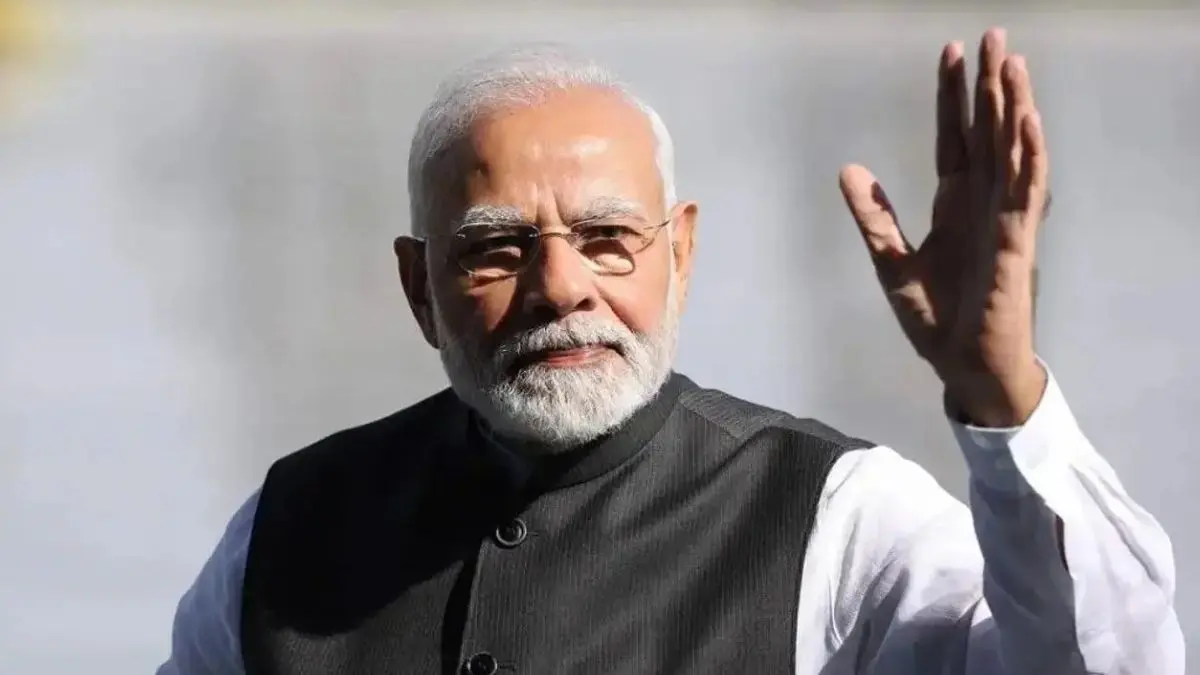Updated 2 July 2025 at 18:17 IST
₹99,446 Crore ELI Scheme to Create 3.5 Crore Jobs—Tata Chemicals Boss Reveals How It Will Transform India’s Labour Market!
Tata Chemicals MD R. Mukundan hails the ₹99,446 cr Employment Linked Incentive scheme, saying it will spur 3.5 cr jobs and foster a resilient, equitable labour market.
- Republic Business
- 3 min read

The center’s bold Employment Linked Incentive (ELI) scheme, unveiled in the Union Budget 2024–25 with an ambitious outlay of ₹99,446 crore, is poised to reshape India’s labour market by facilitating the creation of over 3.5 crore new jobs, industry leaders say. R. Mukundan, President-Designate of the Confederation of Indian Industry (CII) and MD & CEO of Tata Chemicals, on Wednesday described ELI as a “transformative step” that will drive a more resilient, competitive, and equitable workforce.
“We believe the ELI scheme can pave the way for a more resilient, competitive, and equitable labour market in India,” Mukundan said in a video message. He praised the government’s consultative approach during the scheme’s design phase and underscored the importance of public-private partnership in ensuring its success. “On behalf of CII and Indian industry, I extend our full support to the ELI initiative, which will be a pillar of Viksit Bharat,” he added.
Under the ELI framework, first-time employees will receive a wage subsidy of one month’s salary, up to ₹15,000, directly incentivizing companies to hire fresh talent. Employers, in turn, will be eligible for additional incentives over a two-year period for each new hire, effectively lowering the cost of taking on and training new staff. The scheme complements existing flagship programmes such as Production Linked Incentive (PLI), National Manufacturing Mission, and Make in India, creating a holistic push for job creation and industrial growth.
With over 470 million young Indians entering the workforce in the next decade, the ELI scheme arrives at a critical juncture. Economists note that while India’s workforce is among the youngest globally, matching skill sets to industry requirements has been a perennial challenge. By tying financial incentives directly to employment numbers, the scheme aims to bridge the skills gap, encourage formal sector hiring, and expand social security coverage for millions of workers.
CII reports indicate strong enthusiasm among industries ranging from pharmaceuticals to manufacturing, with several large employers already mapping out recruitment drives aligned with ELI guidelines. As the scheme rolls out, its success will be measured in real-time job figures, retention rates, and the pace at which first-time workers gain access to formal sector benefits.
If fully realized, the ELI scheme could mark one of India’s most significant labour market reforms in decades, catalysing a wave of new opportunities that underpins the country’s broader economic ambitions. With Tata Chemicals and other industry stalwarts on board, the blueprint for Viksit Bharat may soon become a reality.
Also Read: Trump Hints at Breakthrough as India-US Trade Deal Talks Near Deadline
Published By : Rajat Mishra
Published On: 2 July 2025 at 18:17 IST
